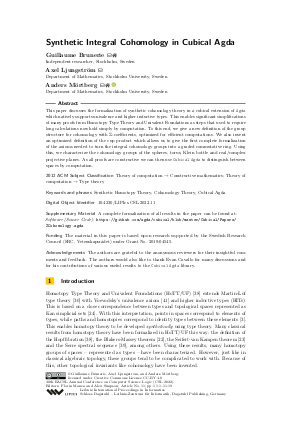LIPIcs.CSL.2022.11.pdf
- Filesize: 0.85 MB
- 19 pages

 Creative Commons Attribution 4.0 International license
Creative Commons Attribution 4.0 International license









Feedback for Dagstuhl Publishing